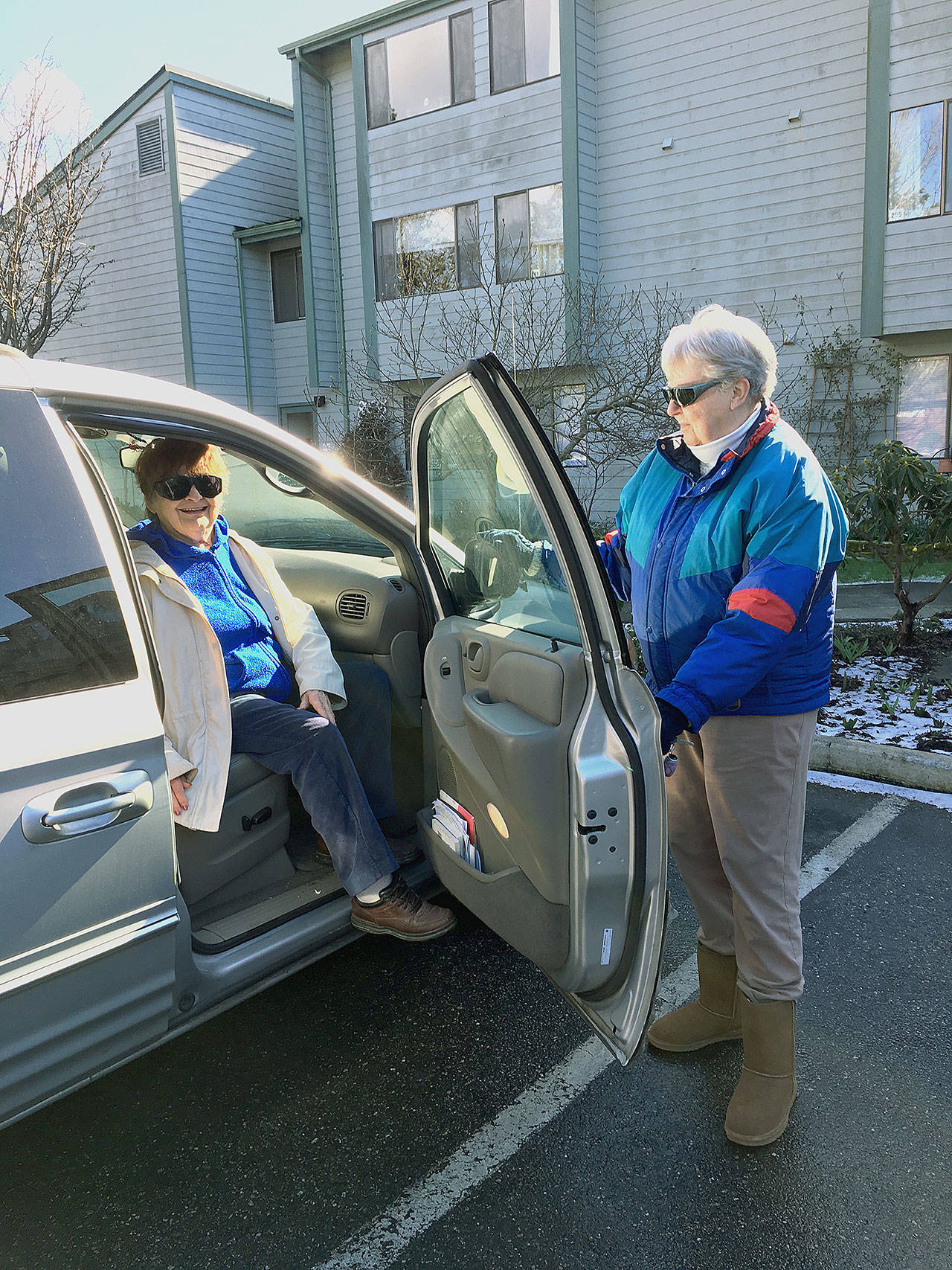Hitching a ride to the doctor can be a big ordeal for senior citizens or those with disabilities, but fortunately Whidbey wheels get turning when a need arises.
Volunteer drivers of all ages and backgrounds put their own spin on the Medical Transportation program administered by Island Senior Resources, arriving in private vehicles to ensure nobody misses a medical appointment for lack of a ride.
As the Whidbey Island population ages, however, the need has drastically increased while the number of volunteer drivers has struggled to keep up with demand.
A comparison of the number of medical transportation trips made through the program in the first six months of 2018 and the same time period in 2019 shows an increase of 223 percent. But the number of volunteer drivers has actually decreased by 11 percent. Even so, those faithful drivers racked up 89,327 miles from January through June this year, dwarfing the 57,545 miles in the first half of last year.
Statistics aside, the simple truth is there’s an urgent need for islanders with wheels to roll up to the task. With a few hours to spare, almost anyone can help fill the crucial role of delivering Whidbey neighbors to medical facilities for dialysis, chemo, specialist appointments or diagnostic procedures.
Island Senior Resources has made the commitment to ensure no islanders age 60-plus or ages 18-59 with a disability are ever turned away for rides to critical appointments. But the organization needs the community to fill the void.
Cheryn Weiser, executive director of Island Senior Resources, explained the importance of the service.
“Medical transportation volunteer drivers are part of the safety net that allows seniors to remain in their homes and continue to live in a place that they love,” Weiser said.
With the considerable increase in miles driven this year, she stressed that “the need for volunteers to drive seniors to their medical appointments is skyrocketing.”
“We need your help,” she said.
Robin Bush, the organization’s outreach director and executive coordinator, points out in her “call to action” that there’s another big plus to pairing drivers and seniors. One of the greatest risks to seniors in the community is isolation, she said, and the time spent riding to and from a medical appointment provides a chance for friendly conversation and an often-needed connection with another person.
Trips can range from short local jaunts to more distant destinations such as greater Seattle or Bellingham, so volunteers can select which trips fit their schedules on any given day.
There’s no cost to the driver, who gets a reimbursement for mileage as well as priority boarding on the Clinton and Mukilteo ferries. There’s also a small stipend for meals when driving off island and a 25-percent discount at Senior Thrift.
The call is out. If you’re 25 or older and have a Washington state driver’s license, current vehicle registration, no moving violations in the past year, and have a car in good working order, you can hit the highway for a good cause – and make a friend along the way.
• To learn more about becoming a volunteer driver, contact Pat Weekly, medical transportation and volunteer services director, at 360-914-3212.


